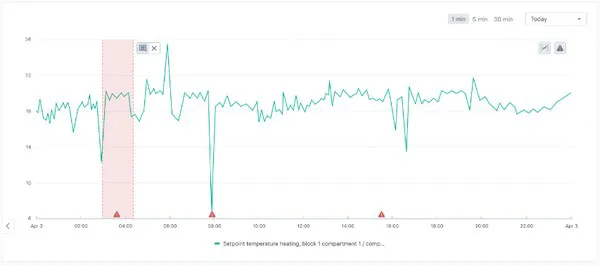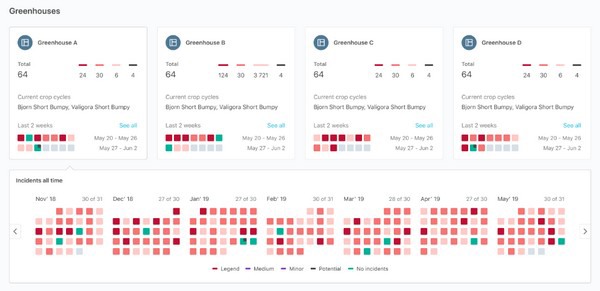Climate Insights is the newest feature of PYLOT which record incidents that disrupt the greenhouse climate. Initially, the program will address deviations in temperature and relative humidity. Other climate variables will be added to Climate Insights over time. Last year, PYLOT introduced the widely applicable and user-friendly ‘big data platform’ for the national and international horticulture sector with a goal to Make Growing Easier.
Despite climate computer control, an incident undermining the programmed greenhouse climate cannot be ruled out. A temperature or humidity level outside the computer’s configured set point could damage the crop. The climate computer should adjust the climate by itself, but there are always situations where this doesn’t occur sufficiently,’ says Marc Rooijakkers of PYLOT, explaining the principle of the new functionality.

‘What Climate Insights does is to record the incident, taking several components into account such as the crop type, its age, the 24-hour period, solar radiation and the greenhouse type. Later the grower can recall the moment at which the situation occurred, analyze it and prevent any recurrence. PYLOT makes adjusting and optimizing easier than ever.
Four measurement settings
Climate Insights currently has four measurement settings to assess deviations: a temperature that is too high or low, and air humidity that is too high or low. PYLOT has undertaken extensive preparations for launching Climate Insights. Several customers were willing to test a first version of the program. Cultivation consultants are also involved closely in the development. Climate Insights has been further perfected based on this practical and positive feedback.
Self-learning algorithms
What makes Climate Insights unique are the self-learning algorithms. ‘Which allows the program to adjust itself continuously’, says Rooijakkers. ‘This ensures that only relevant incidents are reported, and that the program doesn’t respond unnecessarily.’ This occurs because growers can assign a ‘rating’ to recorded incidents. Graphs and overviews of ‘good’ and ‘bad’ days should offer growers more guidance in creating an well balanced greenhouse climate.
Growers remain closely involved in developing of Climate Insights. They will also help to determine what other climate variables needs to be built in, such as greenhouse’s CO2 levels.

In ongoing development
Climate Insights is available right now to all PYLOT users worldwide. The launch of Climate Insights rapid succession of another new feature: day-to-day harvest planning with Crop Cycles. PYLOT was introduced last year and is in ongoing development.
The data platform was created to translate data from various environments and brands of climate computers into usable management information for users worldwide. The aim is to make growing easier and give growers and investors insight and overview when fine-tuning their cultivation strategies. The data platform is available in five languages for the five main crops: tomato, sweet pepper, cucumber, eggplant and lettuce.
For more information: Pylot
Pylot
[email protected]
www.pylot.nl
